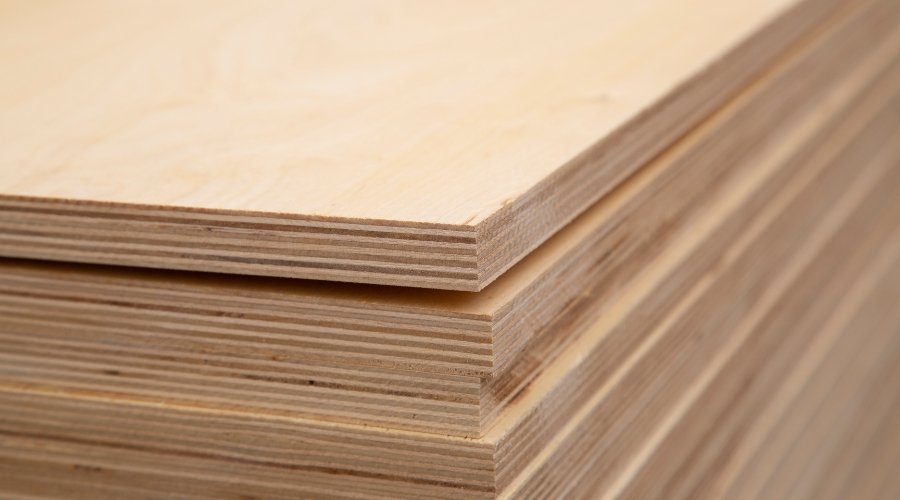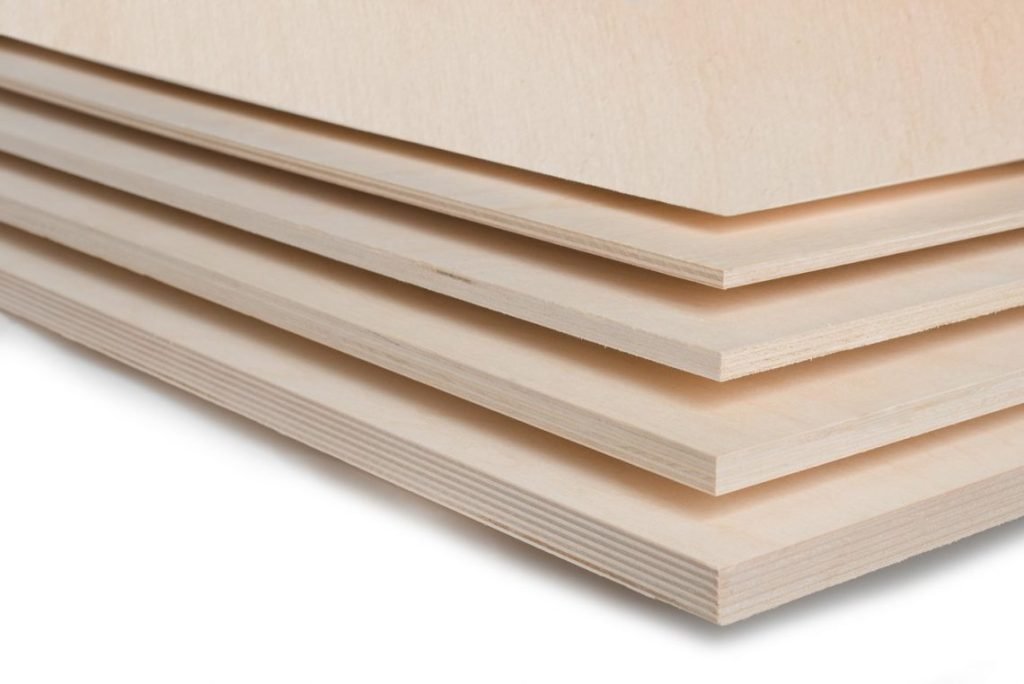Choosing the correct plywood is very important for making sure that the concrete forms you make are strong and long-lasting. Plywood is very important for giving the concrete the stability it needs while it cures. The best plywood for concrete forms, how to pick the proper kind, and what to think about when you buy it.
What are Concrete Forms and Plywood?
Concrete forms are structures that keep liquid concrete in place while it hardens and gets stronger. The kind of used for these affects how easy it is to make them and how strong the finished will be. Using the right kind of plywood for concretesure that the forms up under the weight of the we and the pressure from the curing process.

What Are Concrete Forms?
Concrete forms are temporary buildings that keep wet concrete in place. They are often made of plastic, wood, or steel. The plywood used to make these moulds is meant to make the concrete set on a smooth surface.
The Role of Plywood in Making Concrete
Plywood is strong, long-lasting, and gives stability. The ideal plywood should be able to take the weight of wet and not let moisture in, which could cause it to distort or swell. Using high-quality plywood makes sure that the concrete forms stay in good shape as they cure.
Why It’s Important to Pick the Right Plywood
If you choose the improper plywood, it could cause structural difficulties like cracks, bad concrete, or even form failure. Using the right plywood for makes sure that the finish is smooth, that the structure doesn’t get damaged, and that it lasts longer.
Different kinds of plywood used to make concrete forms
Not every kind of plywood works for concrete forms. There are many kinds of plywood that can be used for formwork, and each one has its own benefits that rely on the needs of the project. The best plywood for concrete forms can handle pressure, wetness, and hard handling.
Plywood for boats
Marine plywood is a very good form of plywood that is made to be used in wet places. Because it doesn’t let water in, it’s a great choice for producing concrete. Marine plywood is one of the greatest types of plywood for concrete forms because it is very strong, long-lasting, and resistant to mold and mildew.
Plywood from BWP
BWP plywood is a sturdy type of plywood that can handle being in water for a long time. People in places where it rains a lot or is humid use it a lot. Because it doesn’t absorb water or moisture, BWP plywood is a good choice for concrete forms.
Plywood made of phenolic resin
Another great option for concrete formwork is phenolic plywood. It is coated with phenolic resin, which makes it very tough against chemicals, water, and wear. The best plywood for concrete forms is constructed from phenolic resin. It makes smooth concrete surfaces and doesn’t break or split.
Things to Think About When Picking Plywood for Concrete Forms
There are a few things to think about while choosing plywood for Some crucial things to think about include the sort of plywood, how thick it is, and how long it will last.
The thickness of the plywood
The plywood needs to be thick enough to hold up under the weight of wet concrete. Depending on how big the project is, ¾-inch or 1-inch thick plywood is usually best for Thicker plywood is stronger, yet thinner plywood may be more flexible.
Strength and long life
It is important that the plywood is strong and long-lasting so that the formwork does not fall apart while it is curing. The best plywood for should be able to hold a lot of weight without bending or breaking.
Resistant to Water
Because concrete forming needs to touch wet concrete, plywood that doesn’t absorb water is very important. The best plywood for concrete forms should not soak up water, because this might weaken the plywood and the concrete.
Why You Should Use High-Quality Plywood for Concrete Forms
There are many benefits to buying high-quality plywood for concrete forms. The best plywood for concrete forms not only makes the construction last longer, but it also makes the pouring process smoother and faster.
Finish the concrete smoothly
The concrete can be set on top of high-quality plywood, which is smooth. This makes the concrete smoother, which means that less finishing work needs to be done after the concrete has dried.
Lasting and able to be used again
You can use high-quality plywood to create concrete many times. This makes it a good alternative for big projects because you can clean the plywood and use it again for future pours.
Cost-Effectiveness
Even though high-quality plywood may cost more up front, it is worth more in the long run because it lasts longer and can be used again. Using the best plywood for concrete forms might save you money over time because you won’t have to repair them as often.
Things You Shouldn’t Do When Picking Plywood
If you choose the wrong plywood, the concrete pouring won’t go well. When choosing plywood for concrete forms, there are a few frequent mistakes to avoid.
Not spending enough on quality
People often make the mistake of buying cheap plywood to save money. This can cause the plywood to stretch, crack, or split, which can destroy the concrete form and cause problems with the structure. To avoid these problems, always choose high-quality plywood, like marine or BWP plywood.
Thin plywood for big projects
Using plywood that is too thin on big concrete jobs can cause the form to fail. Make sure the plywood is always thick enough to hold the weight of the concrete and manage the stress of the curing process.
Not Taking Moisture Resistance into Account
Plywood that isn’t water-resistant might soak up water and get weaker over time. To keep mould, mildew, or warping from happening, always use plywood that is resistant to moisture.
How to Care for Plywood Used in Concrete Forms
Taking care of plywood properly is important for making it last longer. Cleaning and storing the plywood properly after using it for concrete forms will keep it in good shape for future usage.
After using it, clean the plywood.
After each use, clean the plywood of any leftover concrete. To clean the surface, use a scraper or pressure washer. Make sure there are no pieces of junk left behind that could hurt the plywood.
Put the plywood away in the right way
Keep the plywood dry and out of the rain to keep it from getting wet. It could get weaker over time if you leave the plywood outside.
Check the plywood often
Check the for any signs of wear or damage before using it again to make . If the plywood is damaged, splintered, or twisted, it might not be good for making concrete anymore.
The best brands of plywood for making concrete forms
There are a few well-known manufacturers that make the best plywood for concrete forms. This plywood is strong, resistant to moisture, and lasts a long time.
Plywood made from virgin wood
Virginwood has a variety of high-quality plywood that can be used to make concrete forms. Their plywood is made to be used in tough situations, with extra strength and resistance to moisture. For additional information, go to Virginwood Ply.
Century Ply
Century Ply is another well-known brand that makes high-quality, long-lasting plywood that is great for making concrete forms. Their products are very strong and resistant to dampness.
Greenply
People trust Greenply plywood because it lasts longer and is more water-resistant than other types. This makes it a great choice for concrete forms. People also like Greenply plywood because it has a nice finish and can be used again.

Conclusion The Best Plywood for Making Concrete Forms
Picking the right plywood for your concrete forms is an important choice that will determine how well your job goes. No matter what kind of plywood you choose—marine, BWP, or phenolic—make sure it is strong, water-resistant, and thick enough to hold up the weight of the concrete.
If you follow the steps in this article, you can be sure that you choose the correct plywood for your concrete forms and that the pouring procedure will go well, last a long time, and be cheap. When you choose your choice, always keep in mind things like thickness, strength, and how well it resists moisture. To find the best plywood for concrete forms, go to Virginwood Ply or call us at +92 42 35270789 or email us at info@virginwoodply.com.
Questions that are often asked
What kind of plywood works best for concrete forms?
Marine plywood and BWP plywood are the ideal types of plywood for concrete forms since they are strong and don’t absorb water.
Is it possible to utilise plywood again for concrete forms?
Yes, you may use high-quality plywood more than once if you clean and care for it properly.
How thick should the plywood be for the concrete forms?
For concrete forms, ¾-inch or 1-inch thick plywood is usually best, although it depends on the size and type of the job.
How can I keep plywood from bending?
Pick plywood that doesn’t absorb moisture easily and keep it in a dry, protected place to keep it from warping.
What will happen if I use cheap plywood to make?
If you use low-quality plywood, it could fracture, warp, or splinter, which could make the concrete finish look bad or possibly cause the building to crumble.
Is plywood strong enough to hold up under the weight of wet concrete?
Yes, the best plywood for concrete forms is made to support the weight and pressure of wet concrete as it cures.
What do I need to do to keep plywood for concrete forms in good shape?
After each usage, clean the plywood, store it in a dry area, and check it for damage on a regular basis.
Is there a company that makes plywood just for concrete forms?
Virginwood Plywood is a well-known brand that makes high-quality plywood that is perfect for making concrete forms.

